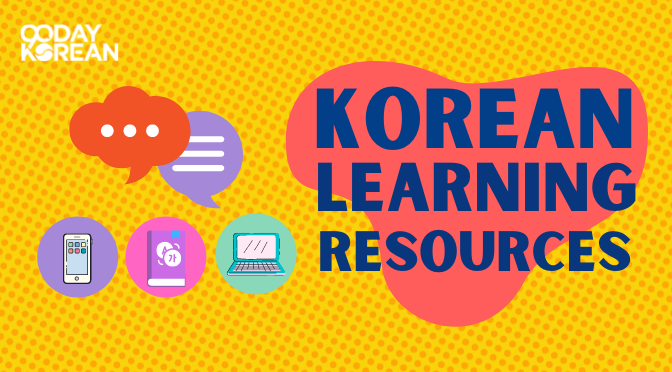Are you curious about how to study Korean effectively? The short answer: Start by learning Hangeul (the Korean alphabet), basic vocabulary, and grammar.
But you may be wondering what the actual steps are.
This article will guide you from basic steps to advanced learning techniques to help your study.
Keep reading to find practical advice on setting realistic goals, overcoming obstacles, and remembering what you have learned. Let’s begin!
Contents
Quick Summary
- ✅We recommend studying Korean by mastering Hangeul, the Korean alphabet, first.
- ✅After Hangeul, focus on acquiring essential vocabulary and basic grammar to start forming simple sentences and engage in basic conversations.
- ✅Engaging with Korean media like music, films, and dramas helps improve listening skills and practice pronunciation.
- ✅Participating in language exchanges and using tools like apps and online courses makes your Korean language learning more effective.
Basic Steps to Start Learning Korean
Before we begin, here’s an important idea we recommend you apply in your Korean studies: 80% of the results come from 20% of the effort.
The 80/20 principle means selecting the most important and relevant materials and focusing on the 20% that give 80% of the results.
Now, let’s head on to the basic steps you should follow when you are starting to learn Korean!
Understanding Hangeul: The Korean Alphabet
Start by learning the Korean alphabet, Hangeul.
There are 14 basic consonants and 10 basic vowels, and you can make syllable blocks by combining them. It’s well-known for its scientific design and how easy it is to learn. It’s even possible to master it in just a few hours.
Here are some of our resources for learning the Korean alphabet:
- Korean Alphabet
- Korean Consonants
- Korean Vowels
- Korean Syllables
- Hangeul Chart
- How to Pronounce Korean Alphabet
- Korean Alphabet A to Z
Building a solid foundation: Vocabulary and Grammar
Once you become good at Hangeul, the next focus should be vocabulary and grammar. Begin by learning learning common words used in everyday life to start talking in Korean. At the same time, basic grammar rules so you can make simple sentences.
Books, online Korean classes, and flashcards can be super helpful during this step.
Vocabulary and grammar may seem overwhelming. But remember, you don’t need to learn everything. Focus on the 80/20!
Here are our articles focused on Korean words and grammar:
Listening and pronunciation practice
After you have learned the basic vocabulary and grammar, it’s time to improve your listening and pronouncing skills. Listen to Korean music and watch movies and dramas to get used to the sounds.
Practice speaking whenever you can, ideally with people who speak Korean well, to improve your pronunciation and intonation.
Here are some of our resources that can help you with that:
- Best K-Dramas for learning Korean
- Best Korean movies for learning Korean
- Learn Korean with K-Pop
- Korean Pronunciation
Advanced Learning Techniques
Once you have gone through the basics, you can level up and use advanced learning techniques better at Korean. Here’s how you can do it:
Studying Korean through media and culture
The best thing about this method is it makes learning fun! Here are some ways to learn Korean through its media and Korean culture.
K-Dramas and K-Pop
Engaging in popular Korean dramas and music is a fun and effective way to learn Korean.
For example, watching a show like “Crash Landing on You” with Korean subtitles can help improve listening skills and understanding of how people talk in real life. Singing along to songs by BTS or BLACKPINK can help you memorize words and pronounce them better.
Korean Literature and News
This is a great way to learn new words and understand Korean better. Start with easy books or children’s books, like the ones by Baek Heena. Then, gradually move to more challenging stuff like newspapers like “Dong-a Ilbo.” You may also try reading short stories.
Studying Korean through language exchange and online communities
These methods not only help you learn Korean but also give you opportunities to meet people with the same interests!
Apps like HelloTalk or Tandem let you talk with native Korean speakers who want to learn your language. This connection can help each other practice by chatting together.
Online Korean Learning Communities
Join forums and groups on Reddit (r/Korean) or Facebook. These communities often share useful resources and helpful advice and support each other. This can help you solve problems and get feedback on your writing or speaking.
Utilizing technology: Apps and online resources
Lastly, we’ll show you more ways to learn Korean online. Even at the comfort of your home, learning Korean becomes possible!
Apps like the 90 Day Korean App, Anki, Duolingo, and Memrise are great if you want to practice words and grammar every day. They use spaced repetition systems (SRS) to help you remember Korean vocabulary for a long time.
Websites like 90 Day Korean, Talk To Me In Korean, and KoreanClass101 offer lessons for all levels. They offer comprehensive resources such as video lessons, podcasts, and quizzes to help you learn.
Use Naver Dictionary to look up the meaning of Korean words and example sentences. It also includes a thesaurus and shows the use of words and phrases in natural contexts.
Tips for Effective Study
Good study habits are crucial for learning new skills, especially for a language like Korean. Here is how our 90 Day Korean course helps you succeed:
Setting realistic goals and creating a study plan
We know that learning something new is exciting, and you would want to get to it right away. However, the preparations before you actually start learning actually help navigate you to the right and easier path. We’ll tell you more about it below!
Structured Learning Path
A structured learning approach ensures you see your progress and keeps your goals manageable. 90 Day Korean is designed to provide clear and achievable milestones that are aligned with realistic timeframes.
For example, by the end of the first 30 days, you are expected to be able to read Hangeul and make basic sentences.
Personalized Study Plans
Make study plans based on your own needs and schedule. In this way, you can learn at your own pace without being overwhelmed.
Overcoming common challenges and staying motivated
Starting to learn Korean is one thing, but keeping at it might be another challenge. Here are some helpful ways to stay motivated.
Community Support
It is helpful to connect with other Korean learners and share experiences. 90 Day Korean offers access to a community forum where learners can connect with others. This support system helps you stay motivated and overcome common challenges.
Regular Feedback
Getting feedback on assignments and quizzes helps you understand your mistakes and fix them. 90 Day Korean offers private coaching where you can stay engaged and receive the help you need to continue progressing. You can receive feedback directly from your coach.
Review and practice: The key to retention
Having a good system for practice helps a lot in terms of remembering what you’ve learned. Here are some tips on retention.
Spaced Repetition Systems (SRS)
Quizzes and flashcards that use SRS to review information at the best times are helpful for memory retention. 90 Day Korean uses this scientifically proven method to help you remember what you learned longer.
Practical Application
Learners should apply what they’ve learned in practical, real-world situations. 90 Day Korean encourages this through structured speaking practice and writing assignments. By mimicking everyday communication scenarios in South Korea, learners will develop the ability to use Korean naturally and effectively.
By using these methods, the 90 Day Korean course helps you learn Korean and feel confident using it in real-life situations.
What to do after learning how to study Korean
After learning how to study Korean effectively and got a solid foundation in the language, you may want to explore these resources to enrich your Korean learning journey:
- Korean Vocabulary – Expand your vocabulary with lists of commonly used words and phrases that are essential for daily conversations.
- Korean Grammar – Learn more about Korean grammar rules to build more complex sentences and improve your conversational fluency.
- Korean Pronunciation – Understand the nuances of pronouncing Korean letters and sounds correctly.
Frequently Asked Questions (FAQs)
Below are some of the most asked questions related to studying Korean.
How can I study Korean by myself?
You can study Korean by yourself using resources like online courses, flashcard apps like Anki, and also Korean dramas and music. Keep a regular study schedule and focus on building a strong foundation.
How do I start learning Korean?
Start by learning the Korean alphabet, Hangeul. It is essential for reading and writing.
How to learn Korean in 30 days?
Set a goal like saying 3 sentences in Korean or having a 1-minute conversation in Korean. Use language apps, learn Hangeul and basic Korean grammar and vocabulary, and practice regularly. Listen to Korean music or watch Korean drama to learn faster while keeping it fun.
Is Korean easy to self-study?
It’s possible to learn on your own if you use the right tools. Use structured courses and practice with native speakers and help to succeed in self-study.
Conclusion
Today, we learned how to study Korean. Start with the basics like Hangeul, vocabulary, and grammar, then use advanced methods such as incorporating media, apps, and cultural immersion.
Remember to focus on the most frequently used parts of the language so you get the fastest results (80/20 Principle). Develop good study habits, such as setting realistic goals and practicing regularly.
What questions do you have about studying Korean? Let us know in the comments below!










